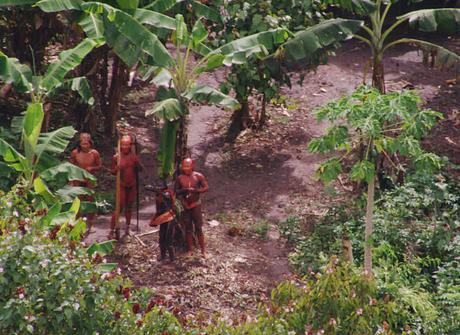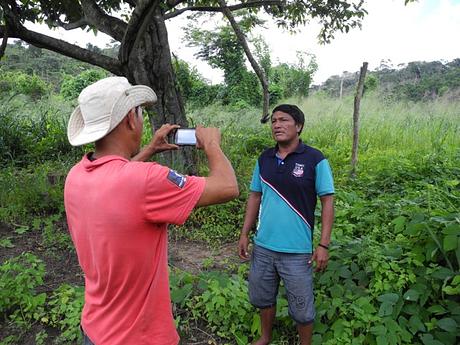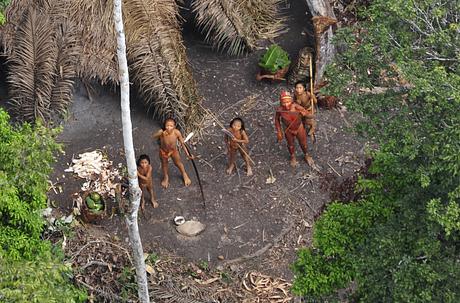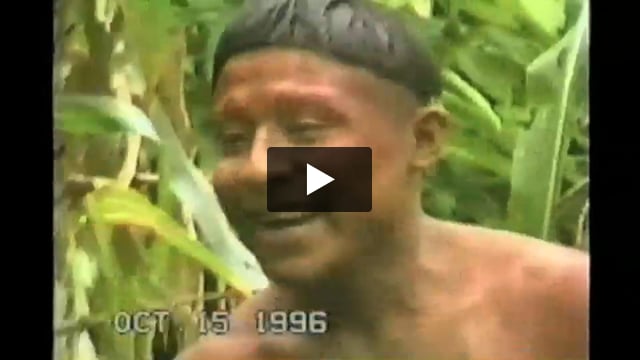Tribes reject calls for forced contact with uncontacted peoples
May 31, 2016
 © BBC/FUNAI/Survival
© BBC/FUNAI/SurvivalThis page was last updated in 2016 and may contain language which is now outdated.
South American tribes have denounced the call from American academics Kim Hill and Robert Walker for forced contact with uncontacted tribal peoples in the Amazon, warning of the catastrophic consequences such contact would bring.
Speaking in a video as part of Survival’s Tribal Voice project, Guajajara Indians rejected the idea entirely. Several members of the tribe, known as the “Guajajara Guardians,” have acted to protect nearby uncontacted Awá people in the absence of greater government support.
The leader of the Guardians, Olimpio Guajajara, said: “We are here… Monitoring the land and defending the uncontacted Indians and the Guajajara who live here. Why? Because there are some people, some anthropologists in other countries who want, once again, to violate the rights of the uncontacted Indians in the country.”
He added: “We are aware that some anthropologists have been calling for ‘controlled contact’ with the uncontacted Indians… We will not allow this to happen because it will be another genocide of a people… of an Indigenous group which doesn’t want contact.”
Video: Olimpio Guajajara criticizes proposals for ‘controlled contact’ with tribes
The Guajajara are the latest of many Indigenous peoples in South America to reject the idea. Davi Kopenawa Yanomami, known as the “Dalai Lama of the rainforest,” has long campaigned for the rights of uncontacted tribes to determine their own futures after witnessing the devastating impacts of contact on his people, the Yanomami, in the 20th century.

Under the Brazilian constitution, all Indigenous peoples have the right to their land, including uncontacted tribes. In 1987 FUNAI, the Indigenous affairs department, adopted a policy of not making contact with uncontacted tribes and continuing to demarcate their territories and enforcing protection of them.
All uncontacted tribal peoples face catastrophe unless their land is protected.
The policy of not forcing contact with uncontacted tribes is supported by Brazilian NGOs like CIMI, ISA and CTI, as well as Survival International.
Uncontacted tribes are the most vulnerable peoples on the planet. Whole populations are being wiped out by violence from outsiders who steal their land and resources, and by diseases like flu and measles to which they have no resistance.
Last month, Survival’s global campaign for the Kawahiva, an uncontacted tribe in Mato Grosso state, succeeded in securing a protected territory for the tribe.
Survival’s Director Stephen Corry said: “When are people going to start listening to tribal peoples about what they want, rather then presuming to know what’s best? The attitude of some academics like Hill and Walker is dangerous and neocolonial. This so-called ‘controlled contact’ could be devastating for uncontacted peoples and would only play into the hands of South America’s logging and ranching mafias, who want to steal the tribes’ land and don’t care about human rights. It is for tribes to determine their relationship to the wider world, not academics.”




